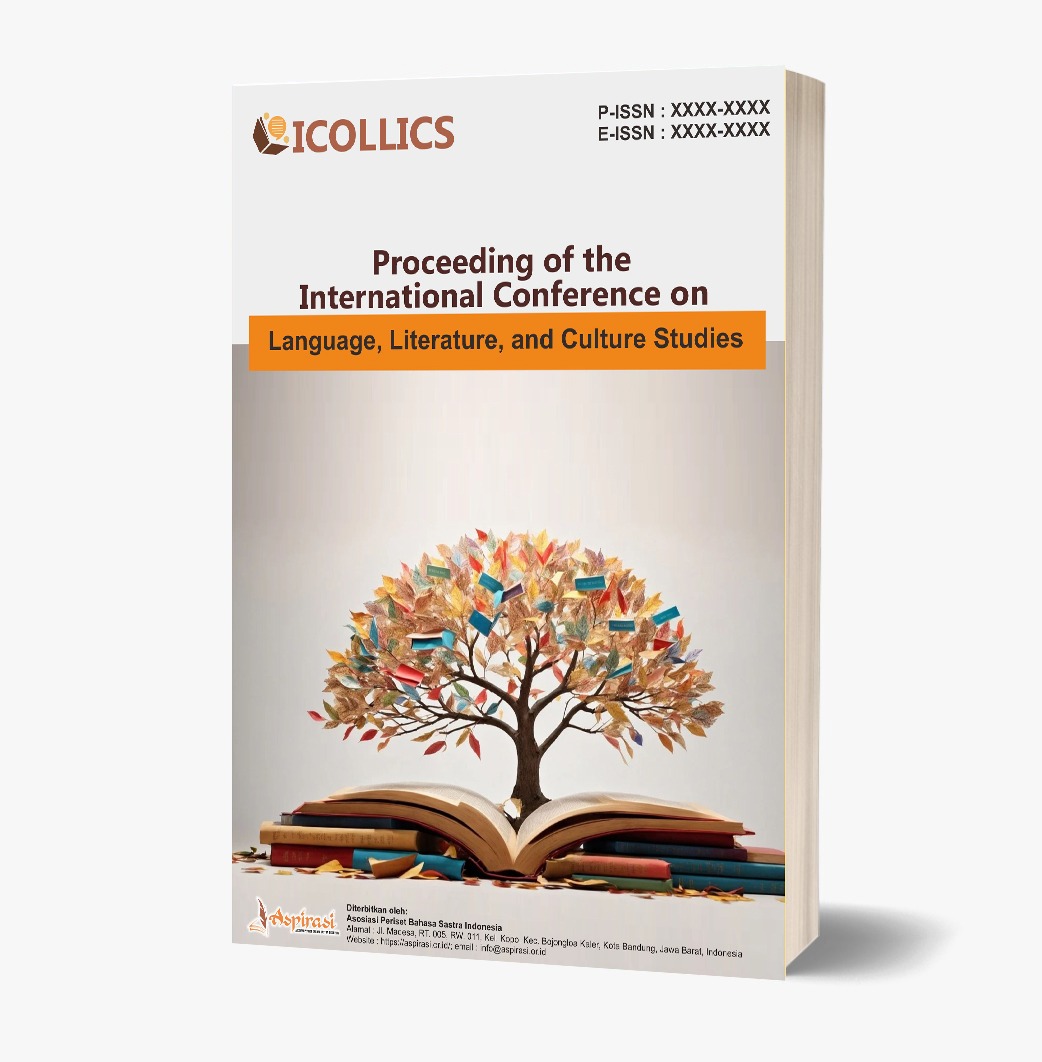The Role Of Language In Shaping National Identity: A Comparative Study Of Indonesia, Kazakhstan, and Monaco
DOI:
https://doi.org/10.61132/icollics.v1i2.10Keywords:
Language, National Identity, Comparative Study, Language Policy, Cultural Narratives, Indonesia, Kazakhstan, MonacoAbstract
This paper explores the significant role of language in the construction and expression of national identity in three distinct countries: Indonesia, Kazakhstan, and Monaco. By analyzing national languages, official discourse, and the cultural narratives embedded within them, the study aims to highlight the ways in which language policies reflect and reinforce the cultural and political aspirations of these nations. A comparison of language practices will reveal the dynamics of language as a cultural tool for nation-building in diverse sociopolitical contexts.
References
Anderson, B. (2006). Imagined communities: Reflections on the origin and spread of nationalism. Verso.
Baker, C. (2006). Foundations of bilingual education and bilingualism (4th ed.). Multilingual Matters.
Bucholtz, M., & Hall, K. (2004). Language and identity. In A. Duranti (Ed.), A companion to linguistic anthropology (pp. 369–394). Wiley-Blackwell.
Ferguson, C. A. (1959). Diglossia. Word, 15(2), 325–340. https://doi.org/10.1080/00437956.1959.11659559
Fishman, J. A. (2001). Can threatened languages be saved? Reversing language shift, reclamation, and vitality. Multilingual Matters.
Higgins, C., & Young, L. (2002). Language and identity in post-Soviet Kazakhstan: The role of Russian and Kazakh in national identity construction. Journal of Sociolinguistics, 6(3), 362–381. https://doi.org/10.1111/1467-9841.00185
Holt, R., & Jordan, L. (2018). Language and nationalism: The politics of identity. Cambridge University Press.
Kaplan, R. B., & Baldauf, R. B. (1997). Language and language-in-education planning in the Pacific Basin. Multilingual Matters.
Kymlicka, W. (2001). Politics in the vernacular: Nationalism, multiculturalism, and citizenship. Oxford University Press.
Liddicoat, A. J. (2007). Language planning in Indonesia: The politics of national language development. In L. Wei & V. K. Pillai (Eds.), Language policy and political economy: The international contexts of language policy (pp. 87–104). Multilingual Matters.
Liu, J. H., & Li, D. (2016). Language, identity, and political conflict: The role of language in building national identity in China. International Journal of Intercultural Relations, 50, 50–61. https://doi.org/10.1016/j.ijintrel.2015.12.001
Malkki, L. H. (1995). Purity and exile: Violence, memory, and national cosmology among Hutu refugees in Tanzania. University of Chicago Press.
Rohman, A. (2012). Language and identity in postcolonial Indonesia: The role of Bahasa Indonesia in the formation of national identity. Language and Society, 41(2), 309–327. https://doi.org/10.1017/S0047404512000159
Tajfel, H., & Turner, J. C. (1986). The social identity theory of intergroup behavior. In S. Worchel & W. G. Austin (Eds.), Psychology of intergroup relations (pp. 7–24). Nelson-Hall.
Wells, H. G. (1999). The role of language in the construction of national identity in Central Asia: A case study of Kazakhstan. International Journal of Central Asian Studies, 3(1), 45–67.






